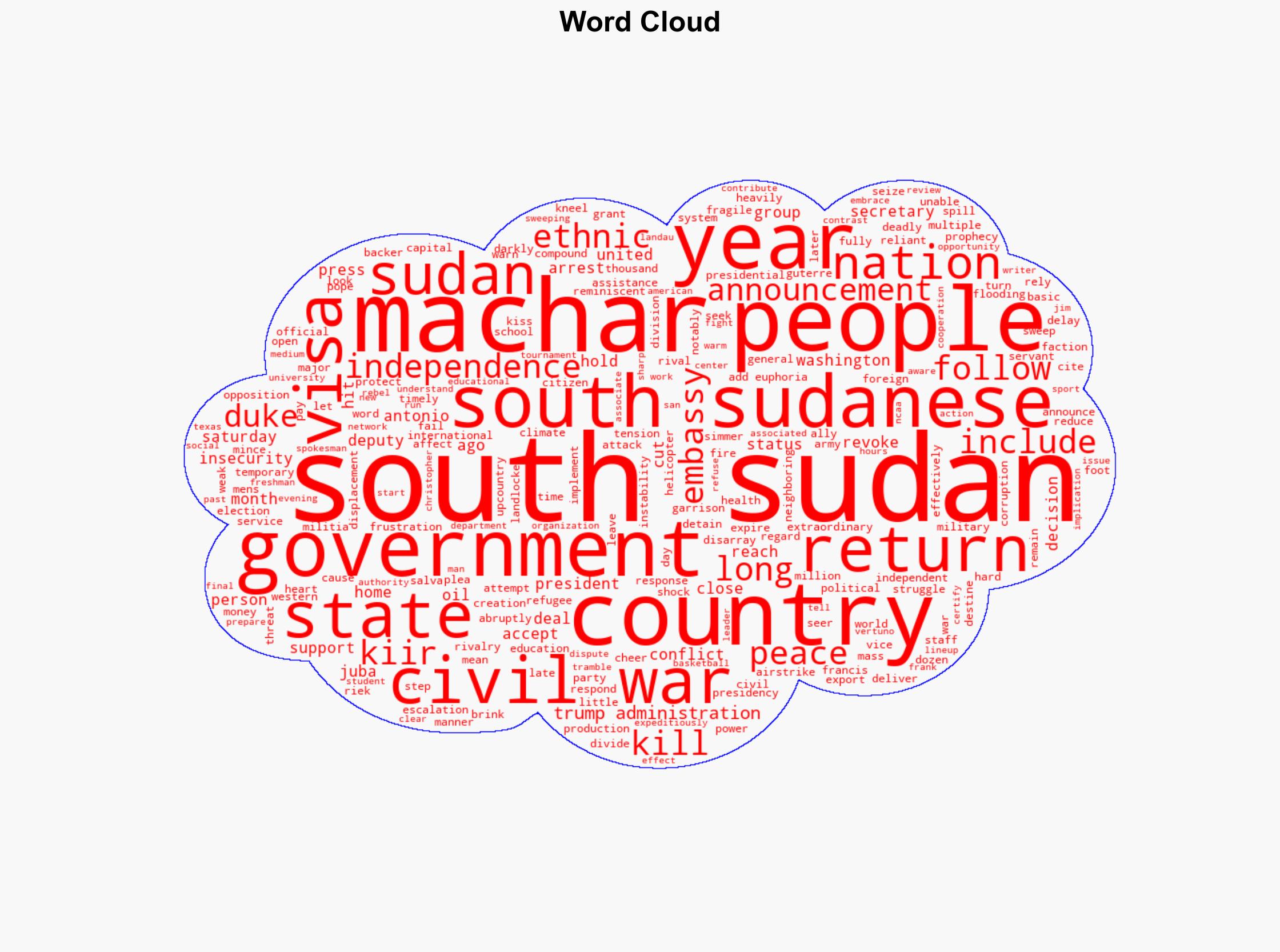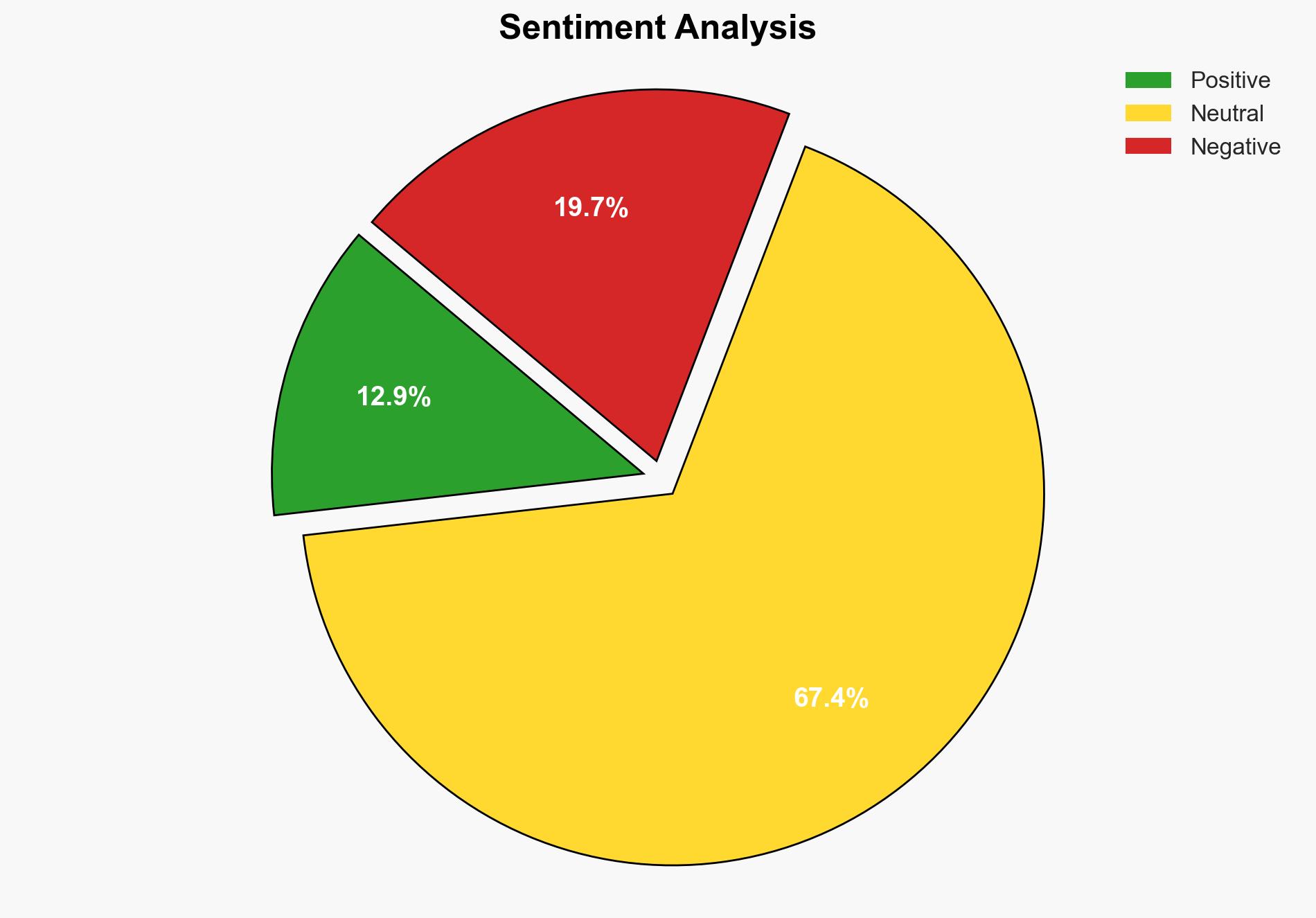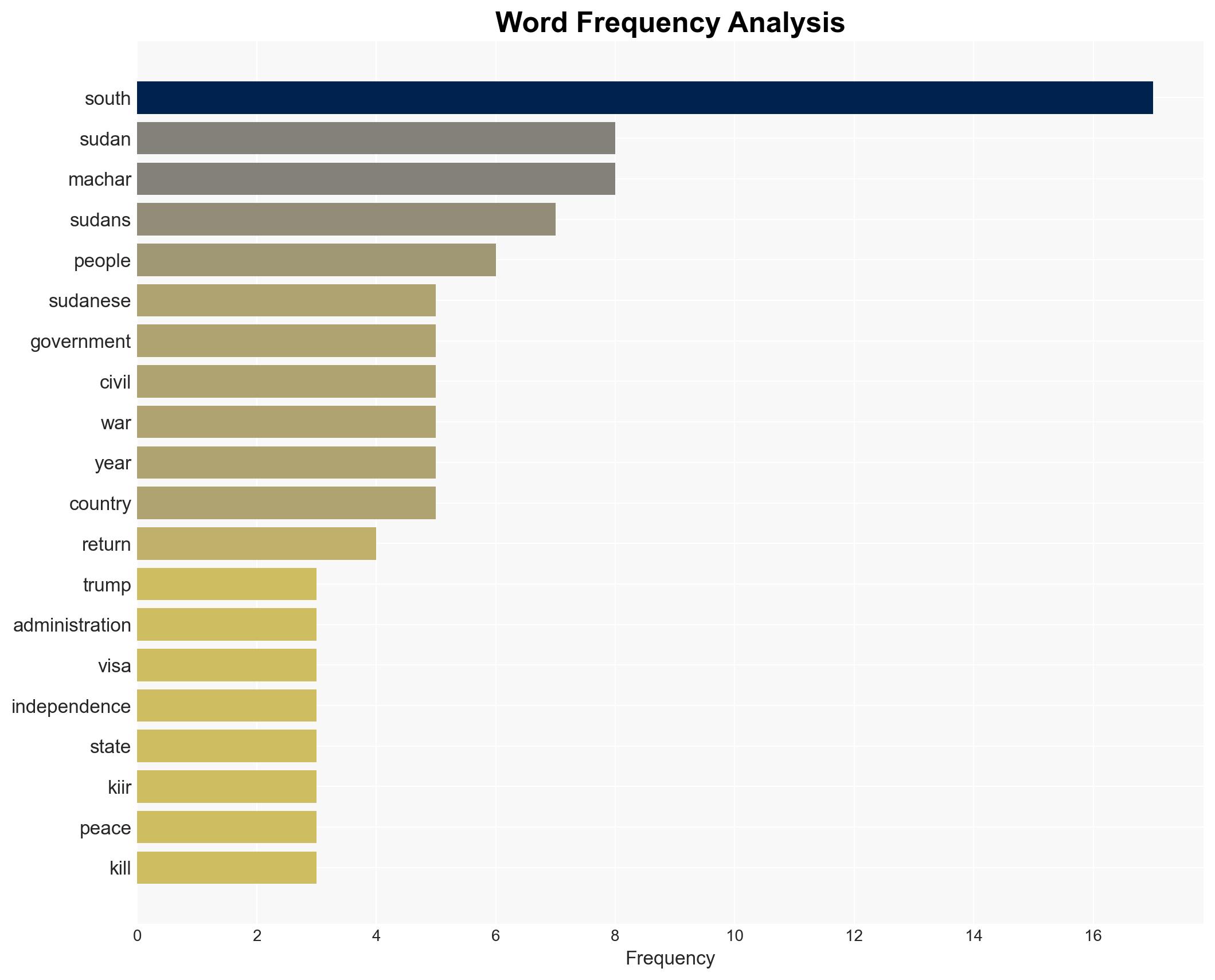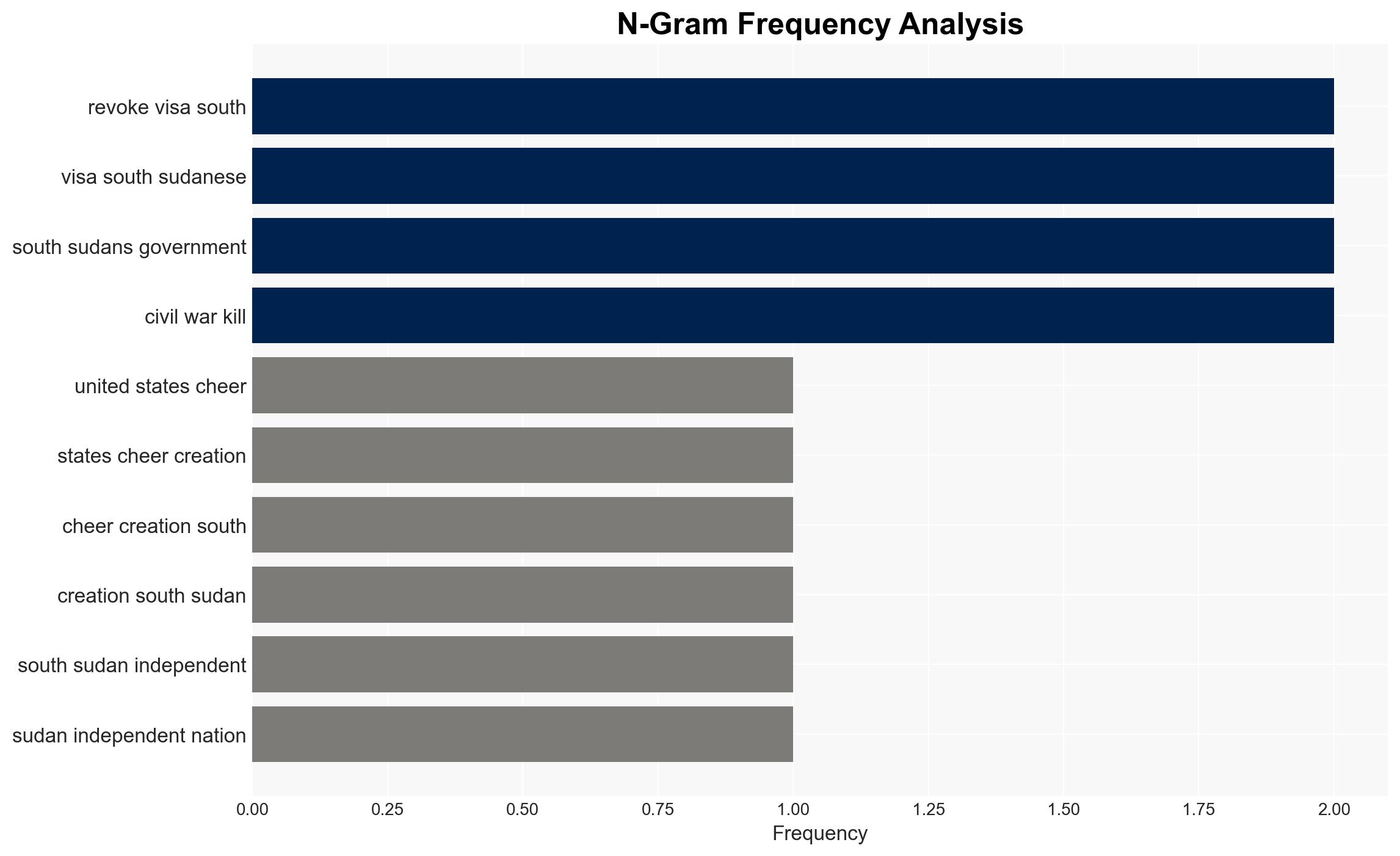The US Has Revoked Visas for South Sudanese While Civil War Threatens at Home – Time
Published on: 2025-04-06
Intelligence Report: The US Has Revoked Visas for South Sudanese While Civil War Threatens at Home – Time
1. BLUF (Bottom Line Up Front)
The United States has revoked visas for South Sudanese nationals, citing the South Sudanese government’s failure to accept the return of its citizens in a timely manner. This decision comes amid escalating tensions and a potential return to civil war in South Sudan, threatening regional stability and humanitarian conditions. Key recommendations include diplomatic engagement to stabilize the region and reassessment of visa policies to balance security concerns with humanitarian needs.
2. Detailed Analysis
The following structured analytic techniques have been applied for this analysis:
General Analysis
The revocation of visas for South Sudanese nationals by the US is a significant shift in policy, contrasting with previous support for South Sudan’s independence. The decision exacerbates the precarious situation in South Sudan, where a fragile peace deal is under threat. The rivalry between Salva Kiir and Riek Machar continues to fuel ethnic divisions and instability. Recent military escalations, including airstrikes and militia actions, indicate a high risk of renewed conflict. The economic situation is dire, with corruption and delayed civil servant payments further destabilizing the nation.
3. Implications and Strategic Risks
The revocation of visas poses several strategic risks:
- Increased likelihood of civil war in South Sudan, threatening regional stability.
- Potential humanitarian crisis as displaced populations face limited options for asylum.
- Economic instability due to disrupted oil exports and internal corruption.
- Negative impact on US-South Sudan relations, potentially reducing US influence in the region.
4. Recommendations and Outlook
Recommendations:
- Engage in diplomatic efforts to support the implementation of the peace deal and prevent further escalation.
- Reevaluate visa policies to ensure they align with humanitarian objectives and regional stability goals.
- Enhance support for international organizations providing aid to South Sudan to mitigate the impact of reduced US assistance.
Outlook:
Best-case scenario: Successful diplomatic interventions lead to the stabilization of South Sudan, with the peace deal fully implemented and ethnic tensions reduced.
Worst-case scenario: Renewed civil war results in widespread displacement and humanitarian crisis, with significant regional spillover effects.
Most likely scenario: Continued instability with intermittent violence, requiring sustained international engagement and support.
5. Key Individuals and Entities
The report mentions significant individuals such as Salva Kiir and Riek Machar, as well as entities like the United Nations and the US State Department. These actors play crucial roles in the unfolding situation in South Sudan.




